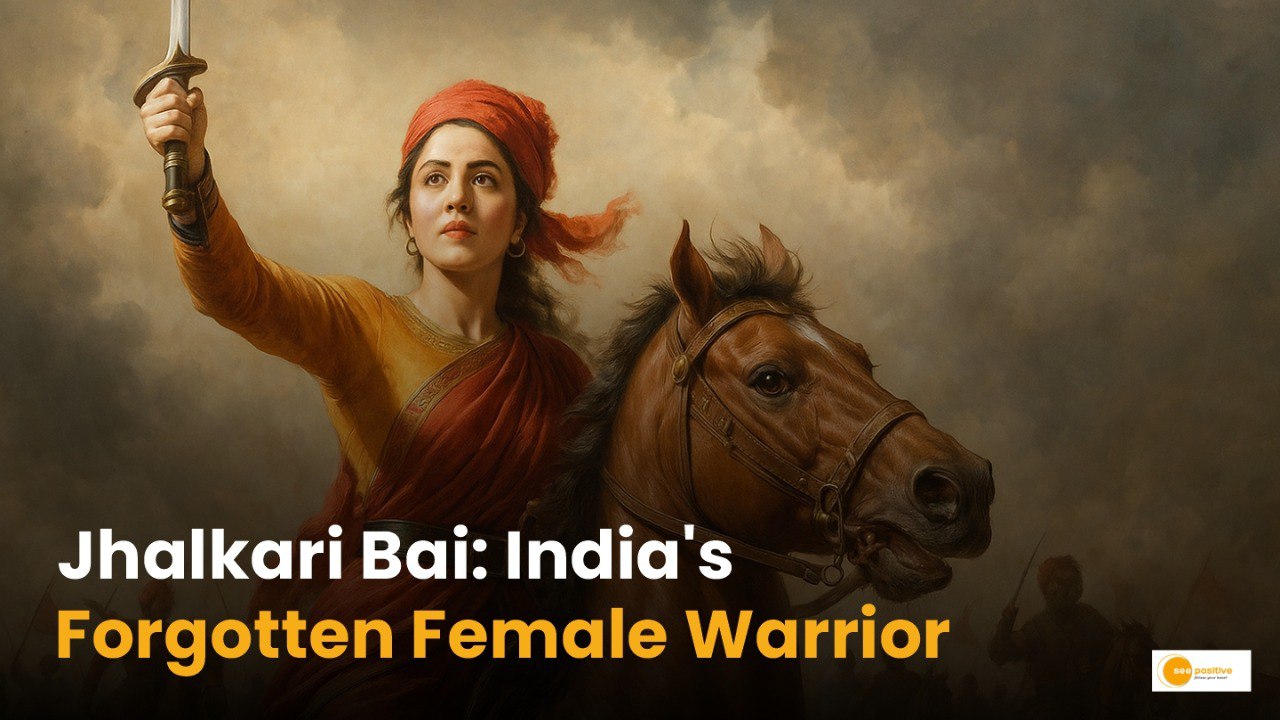Jhalkari Bai: When we think of the Indian Rebellion of 1857, the name Rani Lakshmibai of Jhansi often takes center stage. But history, if looked at closely, reveals the stories of many other warriors who displayed remarkable courage — one such figure is Jhalkari Bai, a fearless soldier who risked everything to protect her queen and confuse the British forces during one of the most critical battles in Indian history.
Humble Beginnings, Unshakable Spirit
Born in 1830 in a Dalit family in the village of Bhojla near Jhansi, Jhalkari Bai was raised in a modest environment. Despite her socio-economic background, she displayed signs of extraordinary bravery from a young age. It’s said that she once fought off a wild leopard with an axe — an early glimpse into the grit and fearlessness that would define her life.
Growing up, Jhalkari Bai was trained in horseback riding, archery, and sword fighting — skills not commonly taught to women, especially those from marginalized communities. Her strength, agility, and intelligence soon drew the attention of Rani Lakshmibai, who welcomed her into the women’s regiment of the Jhansi army.
The Masterstroke: Disguising as the Rani
Jhalkari Bai’s most defining moment came during the Siege of Jhansi in 1858, when British forces led by General Hugh Rose attacked the fort. The situation inside the fort was dire, and Rani Lakshmibai was in imminent danger.
To protect the queen and ensure her escape, Jhalkari Bai took an audacious step — she disguised herself as Rani Lakshmibai, wearing the queen’s attire and leading a group of soldiers to face the British. Her uncanny resemblance to the queen, along with her composed leadership, successfully confused the British, who believed they had cornered the Rani.
This selfless act of deception bought valuable time for Rani Lakshmibai to escape and regroup with rebel forces. Jhalkari Bai, fully aware that she might not survive, chose duty and loyalty over her own life.
A Warrior in Her Own Right
While her impersonation of the queen remains her most celebrated act, Jhalkari Bai was not just a decoy — she was a skilled and respected commander in the Durga Dal, the women’s unit of Jhansi’s army. Her leadership and combat skills inspired other women to take up arms during the rebellion.
Her role highlights not only the participation of women in India’s first war of independence but also the involvement of marginalized communities, whose contributions are often sidelined in mainstream history.
Legacy and Recognition
Despite her valor, Jhalkari Bai’s story remained in the shadows for decades, eclipsed by more prominent figures of the time. However, in recent years, efforts have been made to bring her story to light, especially within Dalit communities, where she is revered as a symbol of empowerment, resistance, and pride.
Statues of Jhalkari Bai have been erected in parts of North India, and her life has inspired plays, books, and academic discussions. In 2001, India Post released a commemorative postage stamp in her honor, recognizing her bravery at a national level.
The Fearless Heart
As we revisit the stories of India’s past, it is essential to remember heroes like Jhalkari Bai — individuals who may not have made it into our textbooks but shaped the course of history with their quiet determination and fearless hearts.


